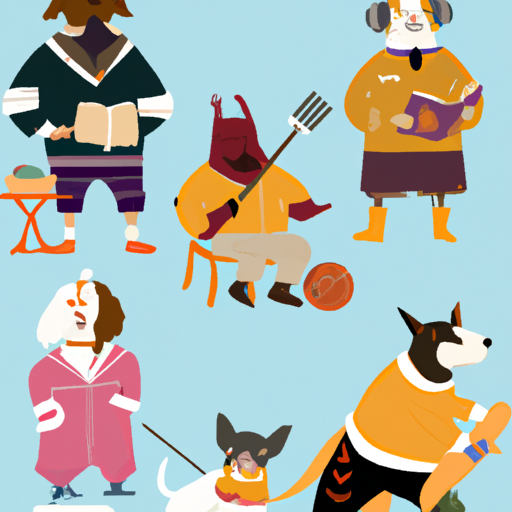Understanding Your Furry Friend
You’ve probably noticed, dogs aren’t just pets; they’re family. They’ve been by your side through thick and thin, providing you with comfort and unconditional love. But have you ever wondered why dogs act the way they do?
- Dogs wag their tails to express a variety of emotions.
- A yawn might not always signify tiredness; it could be a sign of stress.
- Rolling on their back might be a way for your pooch to show submission.
Understanding these behaviors can bring you closer to your furry friend and enhance your bond.
The Art of Training
Training your dog isn’t just about teaching them to sit or stay. It’s about building a communication bridge between you two.
- Positive reinforcement, like treats and praises, can make training sessions effective.
- Consistency is key. Dogs learn through repetition.
- Patience is crucial. Remember, Rome wasn’t built in a day!
Remember, training isn’t a one-size-fits-all process. What works for one dog may not work for another.
Health and Nutrition
Just like us, dogs need a balanced diet to stay healthy. But what does a balanced diet for a dog look like?
| Food Group | Benefits |
|---|---|
| Proteins | Vital for growth and maintenance |
| Carbohydrates | Provide energy |
| Fats | Support brain function |
| Vitamins & Minerals | Crucial for body functions |
Remember to adjust portion sizes according to your dog’s age, breed, and activity level.
The Importance of Regular Check-ups
Regular vet visits can help catch health issues before they become serious. You should ideally take your dog for a check-up at least once a year.
- Regular vaccinations are crucial to prevent diseases.
- Dental check-ups can help prevent oral diseases.
- Regular weight checks can help detect obesity early.
Coping with Loss
Losing a pet can be devastating. It’s okay to grieve, and it’s okay to take your time.
- Reach out to support groups or counselors if you’re struggling.
- Cherish the memories. Maybe create a scrapbook or a photo album.
- Consider volunteering at a local shelter. It can be therapeutic.
FAQ
Q: How often should I feed my dog?
A: Usually, adult dogs should be fed twice a day. Puppies require more frequent meals.
Q: How much exercise does my dog need?
A: It depends on the breed and age, but on average, dogs need at least 1 hour of exercise per day.
Q: My dog seems anxious. What should I do?
A: Try to identify the source of stress. If the anxiety persists, consult a vet or a dog behaviorist.
Q: Can I give my dog human food?
A: Some human foods are safe, but many can be harmful. Always check before sharing your snacks.
Q: Why does my dog keep scratching?
A: It could be due to allergies, parasites, or skin conditions. If it persists, schedule a vet visit.
Remember, understanding and caring for your dog is a journey, not a destination. Keep learning, keep loving!



